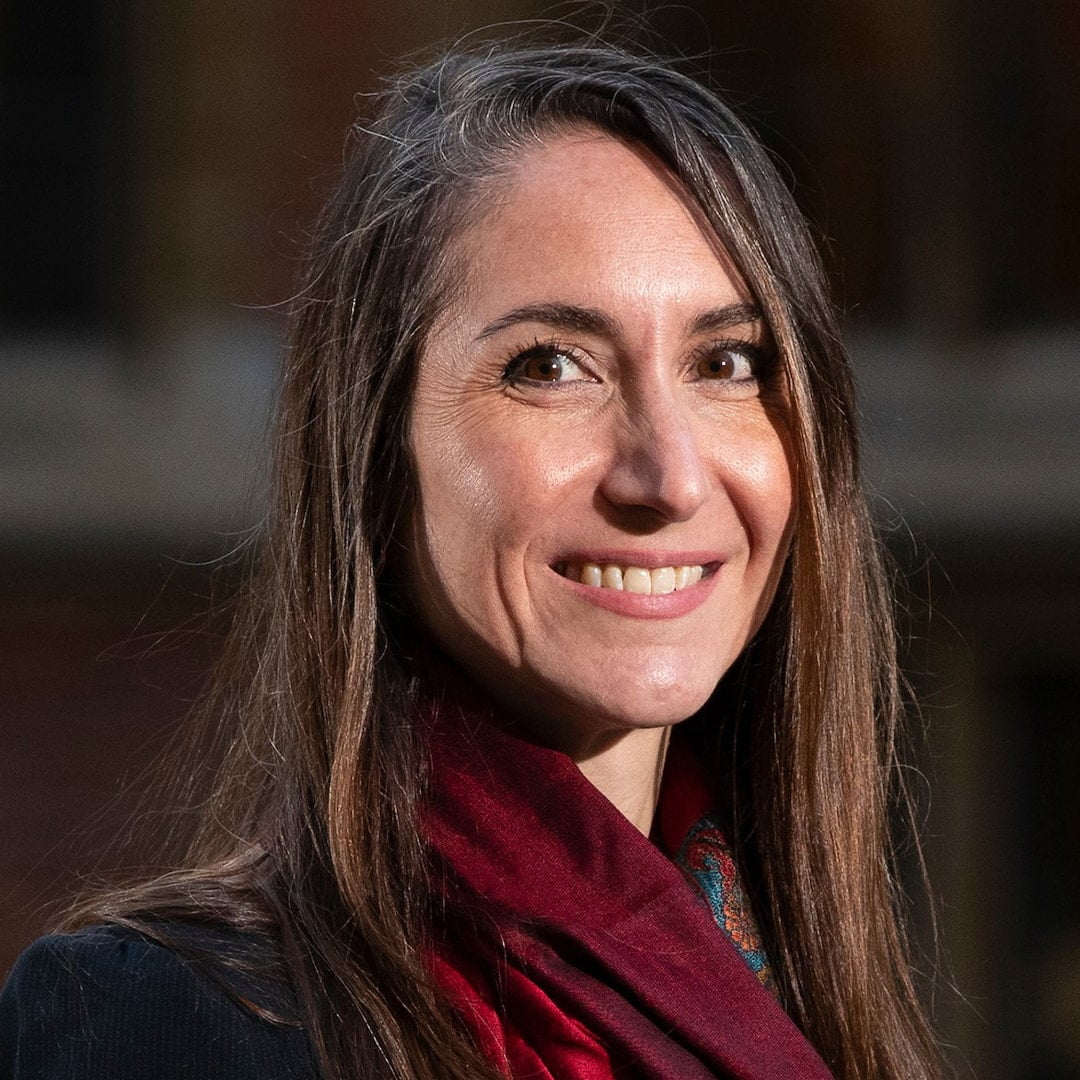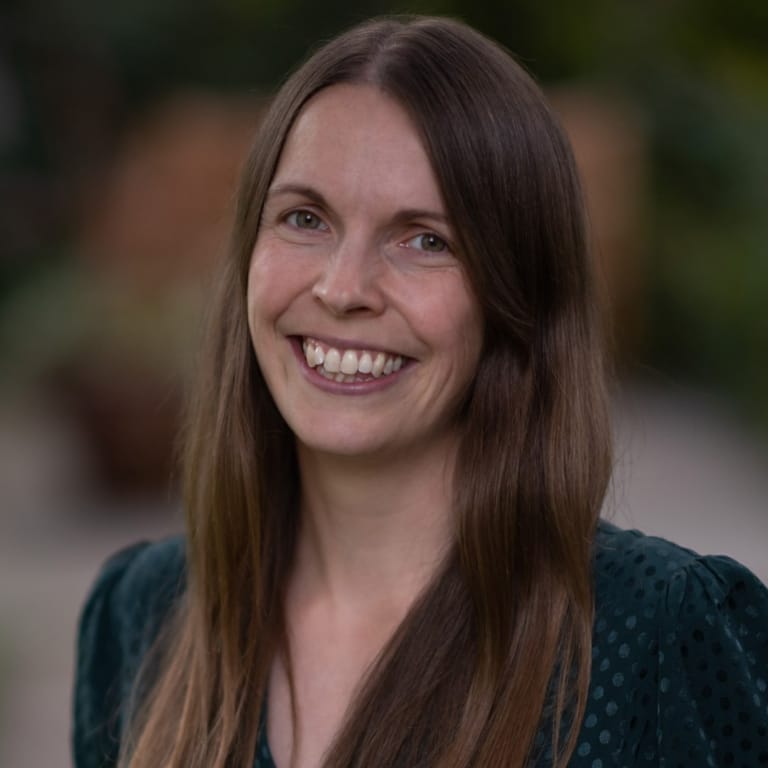
Each year as we greet a new group of Lister Fellows, we see another group progress from Lister Fellow to Former Lister Fellow and Member of the Lister Institute. We spoke with three researchers who are coming to the end of their Fellowship in 2024. They told us about the impact the Lister Prize has had on their careers, and offered some words of advice to new Lister Fellows and Prize applicants beginning their journey with us.
Susana Godinho
Susana is Professor in Cancer Cell Biology at Barts Cancer Institute, Queen Mary, University of London. She studies abnormalities in centrosomes, structures found at the cellular level. Centrosomal abnormalities are recurrent features of human tumours, although they are not present in all cancers. Susana’s Lister-funded project explored how cells with extra centrosomes (centrosome amplification) might play a role in cancer.

Thanks to the Lister Prize funding, Susana and her team were able to focus on: identifying and characterising the pro-invasive factors secreted by cells with extra centrosomes, developing model systems to study how cells signal to one another, and what the impact might be when that signalling is affected by centrosome amplification in tumours.
“The Lister Prize has been instrumental to my career in many ways,” Susana says. “Firstly, the funds allowed my lab to develop and establish a novel area of research which led to the publication two papers that demonstrated that cells with amplified centrosomes can secrete both soluble proteins as well as small extracellular vesicles and characterized the impact of those in the surrounding cells.
“Secondly, the funds enabled us to generate sufficient data to become the foundation for two major grants: an MRC project grant (three years) and a CRUK Programme Foundation Award (six years). Without the initial support of the Lister Institute these would have been harder to achieve.
“Lastly, and perhaps more difficult to quantify, being part of the Lister Institute has expanded my scientific network with new colleagues and friends in diverse areas, which has been very interesting as well as fun!”
“Some of the best advice I got at the start of my award was to be mindful of how the money is spent. The Lister Prize is unique in the sense that the money is flexible and thus, in addition to consumables for the project, it can be used to help extending contracts, travel, and lab retreats. This has been really useful to my lab. In addition, do attend the Annual Meetings! They are really fun and an opportunity to meet new amazing colleagues and learn about diverse scientific areas!”
Learn more about Susana’s work
Amanda Sferruzzi-Perri
Amanda is Professor in Fetal and Placental Physiology at the University of Cambridge. Her Lister Prize project focused on understanding how the placenta, through its production of hormones, affects pregnancy outcomes in normal and obese mothers.

“Thanks to the Lister funding, we have been able to provide conclusive evidence that through the production of hormones, the placenta alters the metabolism of the mother to allow for the transfer of nutrients to the foetus to grow properly,” says Amanda. “Disrupting placental hormone production leads to poor foetal growth with lasting impacts on offspring’s metabolic health.
“This work has been published in three different peer-reviewed articles, receiving lots of media attention. Interestingly, our unpublished data also shows that in obese pregnancies, placental hormone production is abnormal and contributes to metabolic problems in the mother and impaired fetal growth.
“My Lister funding provided the funding tenure and security to delve into these new research areas, to collaborate with others outside my field, expand the repertoire of techniques in my lab, and to foster the career development of those in my lab. I have managed to secure further funding in collaboration with others to explore the role of the placenta in determining pregnancy outcomes in the context of other adverse conditions in pregnancy (e.g. malaria infection and heat stress). On a personal note, I managed to secure a permanent lecturer position, was promoted to Professor a few years ago and I was awarded a prestigious prize for my research contributions (the Hans Sigrist Research Prize).”
“My advice to those starting a Lister Fellowship would be to use the time to focus on answering fundamental questions that have been plaguing your mind that can advance our understanding of human health and disease. Ensure your efforts generate timely publications with you as senior corresponding author – showing your research independence. Harness opportunities to interact with other Lister Fellows, foster the development of others through the summer studentship scheme and expand your scientific network.”
Learn more about Amanda’s work
Tim Blower
Tim is a Professor in the Department of Biosciences and Biophysical Sciences Institute at the University of Durham. He studies bacteriophages (phages), viruses that target bacteria. Phages have been instrumental in our understanding of DNA historically, and are now in the spotlight again thanks to their potential for combating antimicrobial resistance.

“As the problem of antimicrobial resistance increases, there is renewed interest in the use of phages as therapeutic agents – they are clinically proven as viable but out of favour due to the ease of using antibiotics,” Tim says. “A timely opportunity existed to explore BacteRiophage EXclusion (BREX), a more recently discovered phage-resistance mechanism with the potential to generate reagents with useful biotechnological and biomedical activity. By studying BREX using Lister funding we have furthered our understanding of phage-host interactions. Knowledge of these processes is relevant as phages become increasingly viable alternatives to antibiotics.
“The flexibility of Lister funding has been transformational in our work. Lister funded two fantastic postdoctoral researchers in the Blower Lab, Dr Abigail Kelly and Dr David Picton. Between them, Dave and Abbie have so far generated five publications in peer-reviewed journals, with at least another two to come based on their data.
“Using Lister funding as principal investigator I have also been able to build and support my network of collaborators within the UK (University of Surrey), New Zealand (University of Otago), Russia (Skoltech) and the US (Fred Hutchinson Cancer Center and Seattle University). This included a research visit to Seattle to learn cryo-electron microscopy with Prof Barry Stoddard and Prof Brett Kaiser. In all, an additional two papers have been published from these collaborative efforts, with another three in revision.
Don’t be scared to apply – competition is stiff but the Scientific Committee provide great feedback if you aren’t successful the first time around , and that will help you develop your ideas for next time.
“Scientifically, highlights include generating the first atomic resolution structures of four out of six core BREX proteins and an associated restriction enzyme, and discovery and characterisation of a new widespread family of regulators controlling defence against phages across widespread bacterial species. We have also been able to support undergraduate learning and development, taking phages isolated in undergraduate classes, and then publishing genomic and morphological characterisations. The students were acknowledged for their work within the papers.
Considering new applicants for the Lister Prize, Tim says “my simple advice for applicants is to contact current Fellows and ask how they approached the process. They might even be willing to share application documents to help give you some ideas! Don’t be scared to apply – competition is stiff but the Scientific Committee provide great feedback if you aren’t successful the first time around, and that will help you develop your ideas for next time. For new Fellows – this funding will be the most flexible you will ever obtain. Be sure to use it wisely!
Applications now open
Want to become one of our 2025 Lister Prize Fellows? Applications are open until 23 September 2024.



